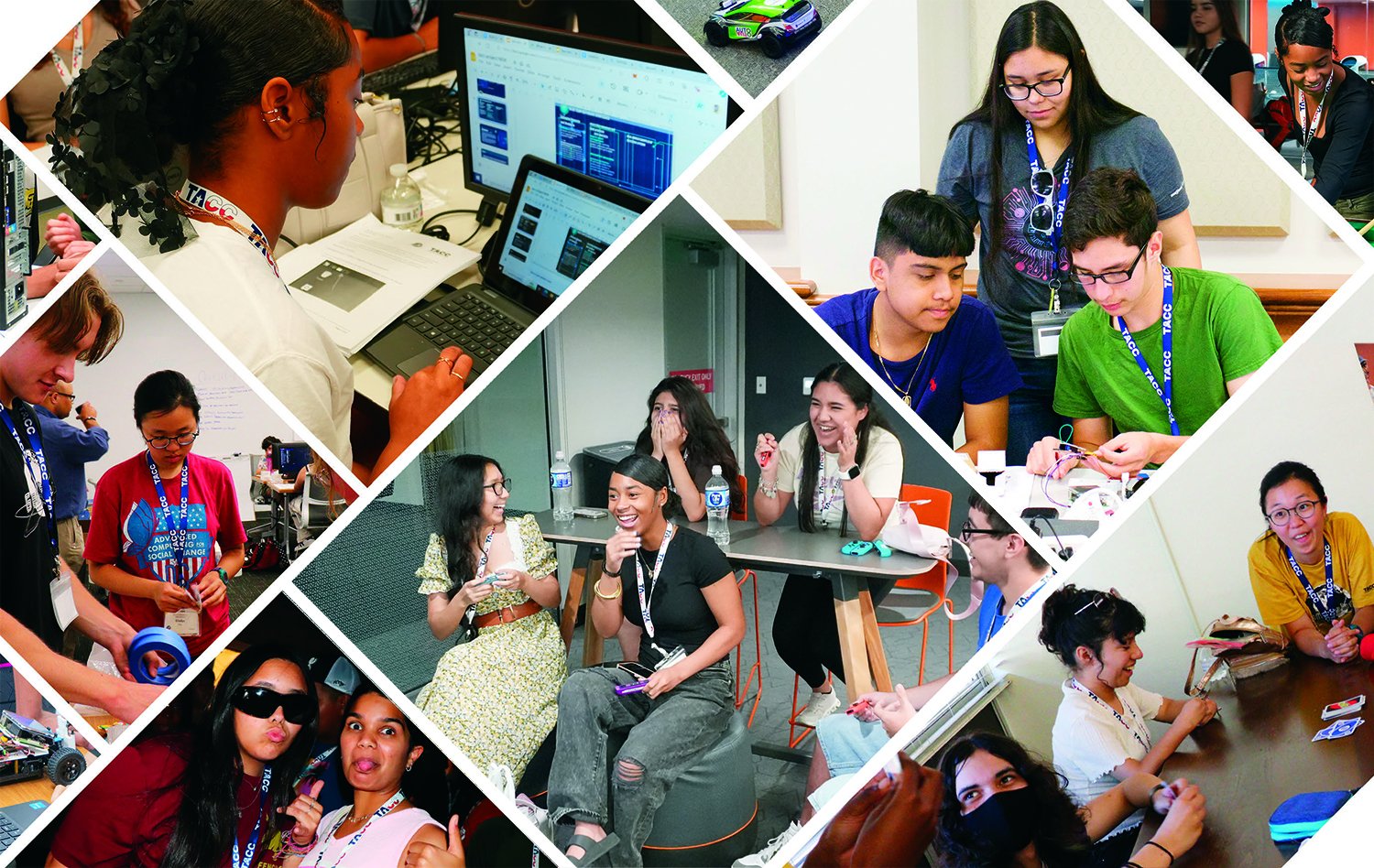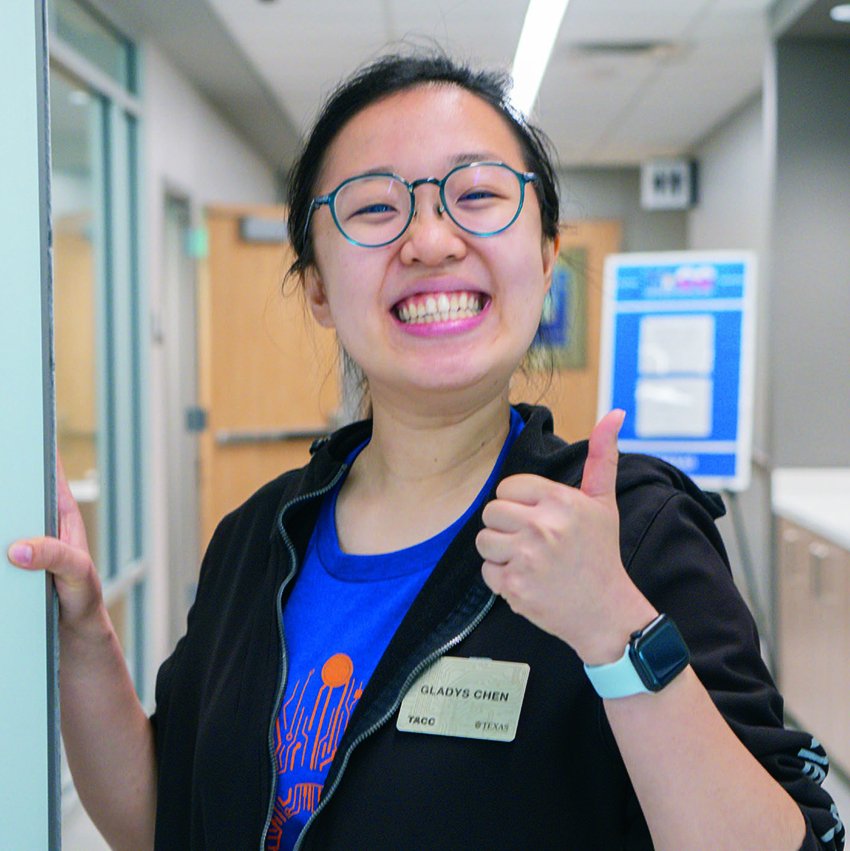People & Programs
Damian Hopkins
Mentorship Pays It Forward
Near-peer program supports students and grows leaders across programs

Who comes to mind when you think of a mentor?
Perhaps you had a mentor who helped you get oriented at a new job; or your company matched executives with junior employees to learn the organization; or you were part of a group of professionals who helped each other with career advice.
TACC uses the near-peer mentoring model, where students are paired with someone slightly ahead of them, often another student who previously participated in a TACC student program.
“The near-peer mentoring model is effective for increasing access, retention, and success, particularly for underrepresented students,” said Rosalia Gomez, director of TACC’s Education & Outreach team. She has used the near-peer model across various programs since she started working in higher education more than 20 years ago. “Near-peer mentoring supports student development and provides an opportunity for students to inspire future generations.”
TACC uses this model in its signature Code@TACC summer camps for high school students. Since 2015, these camps have served more than 600 students with the majority identifying as African American/Black or Hispanic/Latinx. Hundreds of participants have gone on to pursue postsecondary education in STEM fields.
Yaritza Kenyon, a Code@TACC alum who participated as a near-peer mentor and recently as a lead counselor, will graduate from Texas State University in 2025 with a degree in Computer Science.
“Being a near-peer mentor means I’m part of a team giving opportunities to students who otherwise may not have a chance to enter the STEM world,” Kenyon said. “As a Latina in STEM, I know that representation is important in fields where it’s hard for some students to feel accepted.”
TACC also engages near-peer mentors in weeklong and summer experiences for undergraduates, including the Advanced Computing for Social Change (ACSC) and Cyberinfrastructure Research for Social Change programs.
Jayda Smith of Texas Empowerment Academy attended Code@TACC camps in 2023 and 2024.
“As a camper, I was excited to dive into new technologies like coding and learn alongside those who shared the same interests,” Smith said. “Having a supportive and engaging mentor like Yaritza motivated me to want to be a guide for others.”
Gladys Chen participated in ACSC 2021 before serving as a near-peer mentor the following year. Chen now works at TACC providing advanced HPC user support.
“It was an honor to give back and mentor students in the same way that staff and peer mentors invested in and supported me during my time as an ACSC participant,” Chen said. “TACC staff have been instrumental in my professional journey. I am grateful for their guidance.”
To date, more than 90 students have served as near-peer mentors across TACC student programs. Several students have returned as peer mentors more than once.
“Many students return because we foster a sense of belonging,” Gomez said. “The Education and Outreach team appreciates students who want to come back and serve the next cohort of participants. Everyone is welcome to return.”

Q&A with Gladys Chen
Advanced HPC User Support, User Services
Gladys Chen provides user support at TACC, contributes to training efforts, and assists with HPC projects. Outside of work, she loves all aspects of traveling—exploring new places, trying new foods, and learning about diverse cultures.
How did you get into into the STEM field?
During my time at Oral Roberts University, I participated in a data science fellowship with the Association for Computing Machinery. After graduating in 2022, I earned a full scholarship from ORU to pursue a master’s degree in data science and computer science, which I completed in 2023.
How does the near-peer mentoring model aid you professionally?
I’m a recent college graduate so being close in age helps me connect with students and understand their struggles. I love how TACC invests in equipping the next generation of STEM professionals with the tools they need for successful careers.
Why should others use this mentoring model?
Near-peer mentoring helps build connection and empathy. The rapport you build build becomes the foundation of your relationship. “I see your potential” carries more impact when someone trusts you.

